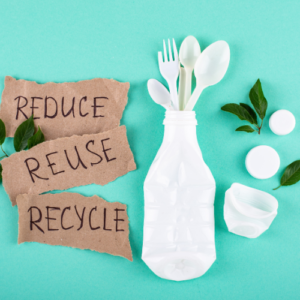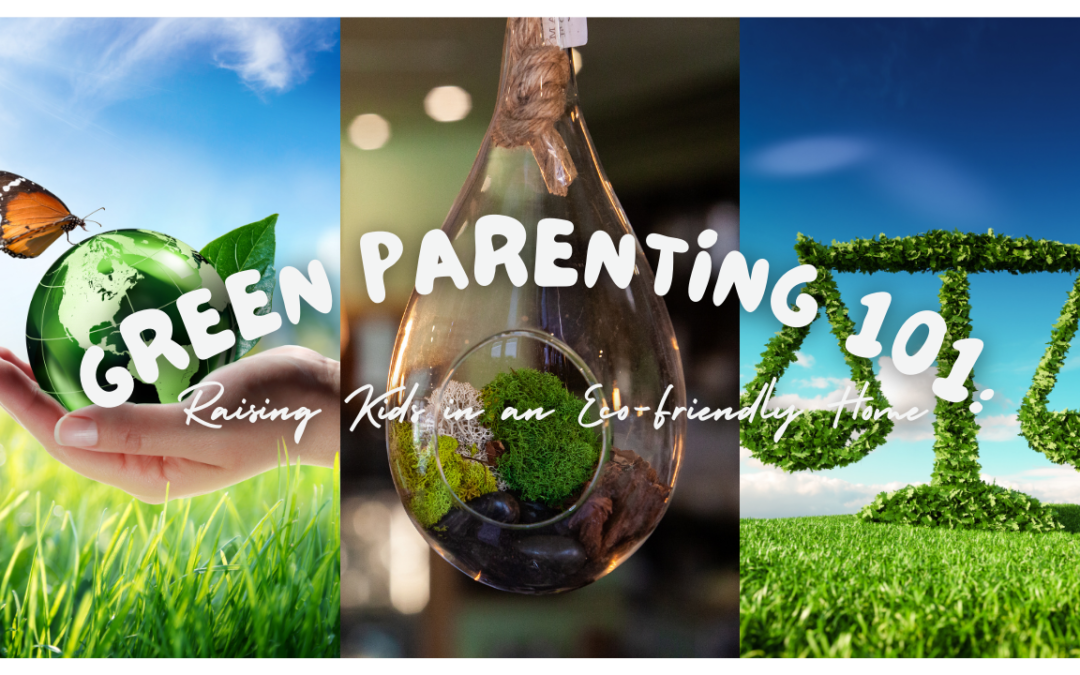In a world where environmental consciousness is becoming increasingly crucial, many parents are seeking ways to raise their children in a more sustainable and eco-friendly manner. Green parenting goes beyond simply using cloth nappies or recycling; it involves cultivating an environmentally conscious lifestyle that permeates every aspect of a child’s upbringing. From eco-friendly cleaning routines to conscious choices for children’s products, let’s explore the foundations of green parenting and how you can create an eco-friendly home for your family.
1. Sustainable Living Starts at Home

The journey of green parenting begins at home with sustainable living practices. Start by reducing your household’s carbon footprint through energy-efficient appliances and smart home choices. Opt for LED bulbs, install a programmable thermostat, and teach your kids the importance of turning off lights and electronics when not in use. Consider solar panels to harness clean energy and show your children the power of renewable resources.
2. Conscious Consumption: Choose Wisely

The consumer choices we make significantly impact the environment. From the food we eat to the clothes we wear, parents can instill eco-conscious values in their children by making mindful choices. Opt for organic, locally sourced produce to support local farmers and reduce the carbon footprint associated with transportation. When it comes to clothing, choose sustainable fabrics such as organic cotton and explain to your kids the environmental impact of fast fashion.
3. Eco-Friendly Cleaning Routines

Cleaning is an inevitable part of parenting, but it doesn’t have to harm the environment. Green parenting involves adopting eco-friendly cleaning routines that minimise the use of harmful chemicals. Swap conventional cleaning products for natural alternatives like vinegar, baking soda, and essential oils. Teach your children how to make simple yet effective cleaning solutions, fostering a sense of responsibility for the environment from a young age.
4. Sustainable Nappy Choices

Nappies are a staple in early parenting, and the choice between disposable and cloth nappies can significantly impact the environment. Cloth nappies are reusable, reducing the immense waste associated with disposable counterparts. Additionally, modern cloth nappies come in a variety of styles and are much easier to use and clean than traditional cloth nappies. Embracing cloth nappies not only reduces environmental impact but also sets an example of responsible parenting for your children. While modern cloth nappies are the most sustainable option, we also understand that not every parent has the time or energy to keep up with the washing and maintenance that comes with them; and that’s okay! There are however, biodegradable nappies on the market that can help reduce your footprint too.
5. Mindful Toy Selection

Children’s toys often contribute to excessive plastic waste and environmental degradation. Green parenting involves opting for toys made from sustainable materials such as wood, bamboo, or recycled plastic. Look for toys that are durable and have minimal packaging to reduce unnecessary waste. Encourage your children to appreciate the value of fewer, well-made toys rather than accumulating a plethora of disposable playthings.
6. Educate and Involve Your Children

One of the most powerful ways to instil eco-friendly values in your children is through education and involvement. Teach them about the importance of biodiversity, the impact of pollution, and the significance of conserving resources. Take family trips to nature reserves, parks, and farms to foster a connection with the environment. Involve your children in eco-friendly activities like gardening, composting, and participating in community clean-up events. By actively engaging them in environmental efforts, you empower your children to become responsible stewards of the planet.
7. Reduce, Reuse, Recycle

The classic mantra of environmentalism – reduce, reuse, recycle – holds true in the realm of green parenting. Encourage your children to embrace a minimalist lifestyle, focusing on quality over quantity. Teach them the importance of reusing items whenever possible and the significance of recycling to minimize waste. Implement recycling bins in your home and make recycling a family affair. By instilling these habits early on, you contribute to building a generation that prioritises sustainability.
8. Sustainable Transportation

Green parenting extends beyond the home and into your family’s transportation choices. Whenever possible, opt for eco-friendly modes of transportation such as walking, biking, or using public transport. Explain the environmental benefits of reducing car usage and encourage your children to adopt these habits as they grow older. Consider investing in hybrid or electric vehicles to further minimise your family’s carbon footprint.
Green parenting is about fostering a conscious, sustainable lifestyle that permeates every aspect of raising children. From the products you choose to the habits you instil, adopting eco-friendly practices not only benefits the environment but also sets a powerful example for the next generation. By incorporating these principles into your parenting approach, you contribute to creating a healthier, more sustainable future for your children and the planet they will inherit.

